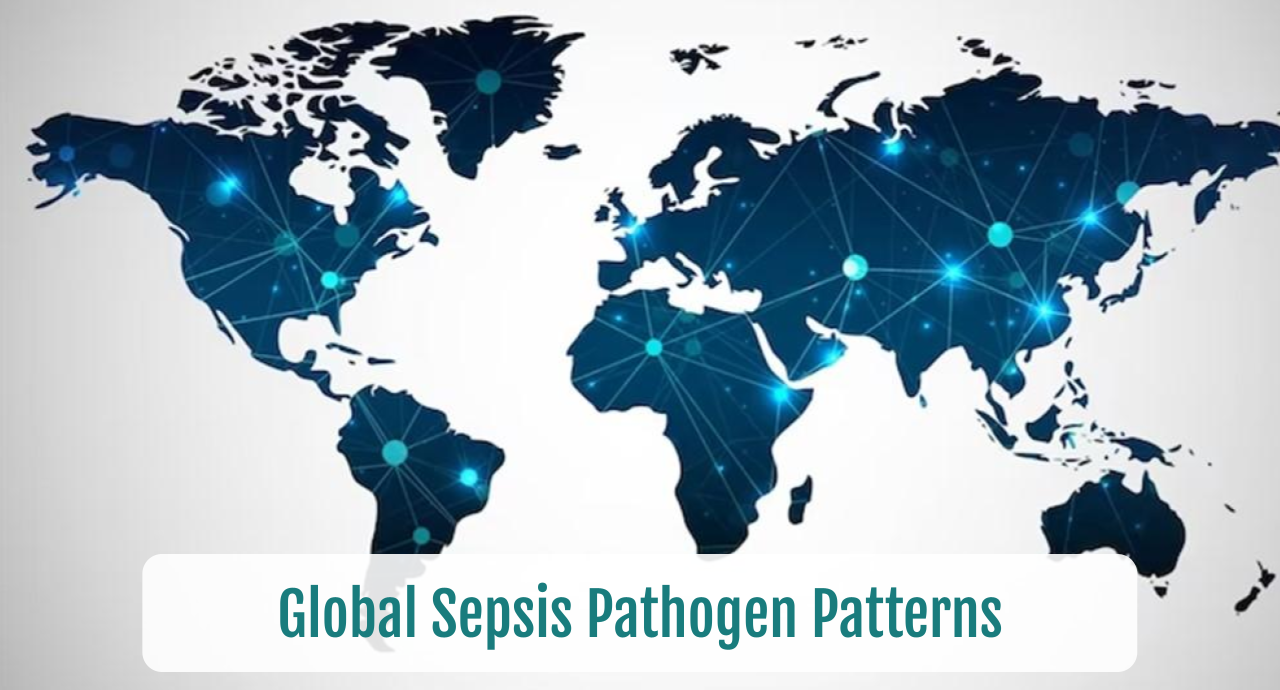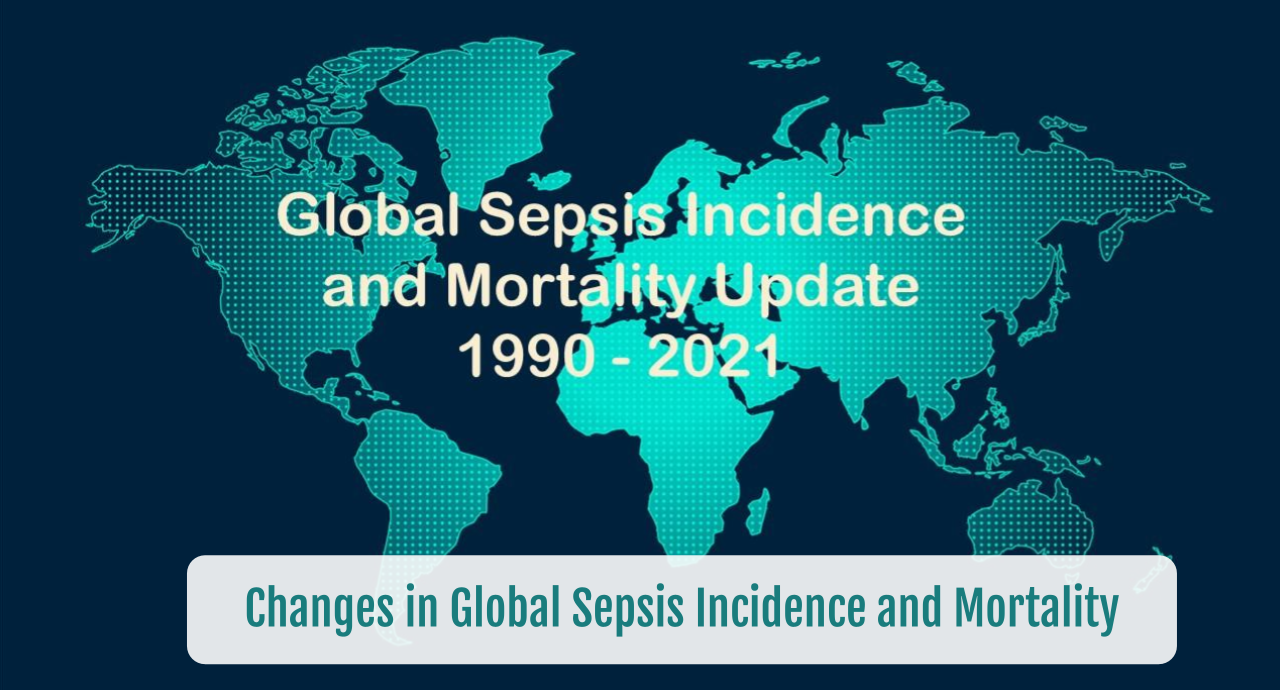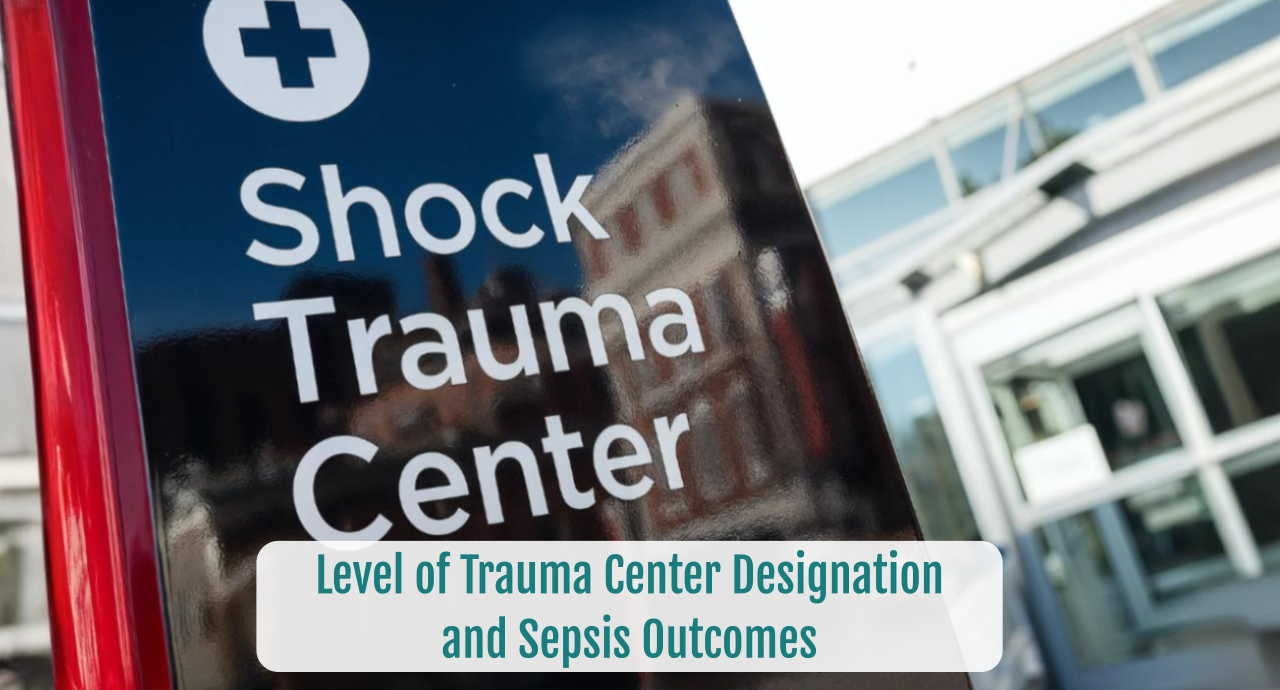Global Sepsis Pathogen Patterns
SUMMARY:
-
Although sepsis is a global problem, there is little data on the pattern of causative organisms as well as any changes over time.
-
Until the pandemic, bacterial sepsis was the predominate pathogen. However, the COVID pandemic saw viral sepsis become a major factor.
-
Differences exist in sepsis pathogen patterns globally.
REVIEW:
-
Several large studies over almost 2 decades have evaluated the global frequency of sepsis on frequency and outcomes, including pathogen identification.
-
The major studies are outlined in the table below:
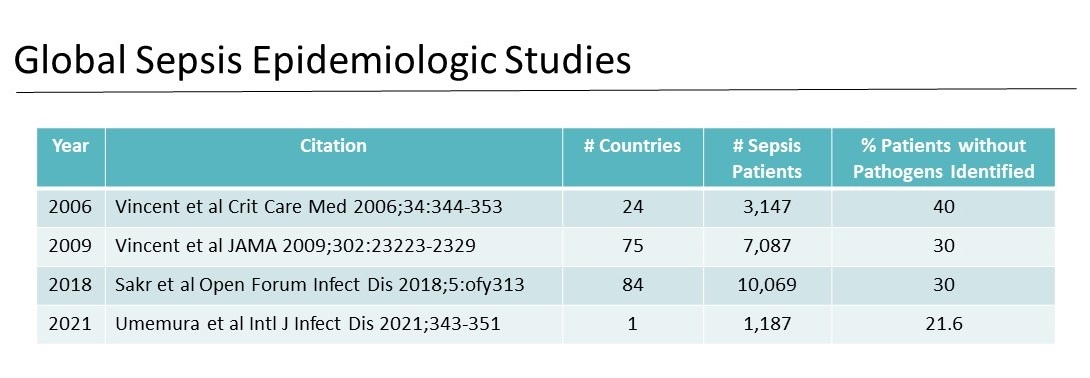
-
Percentage of unidentified pathogens remains high.
- Up to 40% of patients did not grow an identifiable pathogen.
-
Also important to note that when blood cultures are positive, there is a high risk (up to 50%) of false positive findings.
- Pathogen patterns varied around the globe
-
-
Gram positive organisms are prevalent in some regions whereas Gram negative and fungi are more common in others.
-
- The most common pathogens found also varied by region around the world.
- Gram negative pathogens are consistently more prevalent than Gram negative pathogens.
- Mixed infections are a common occurrence as well.
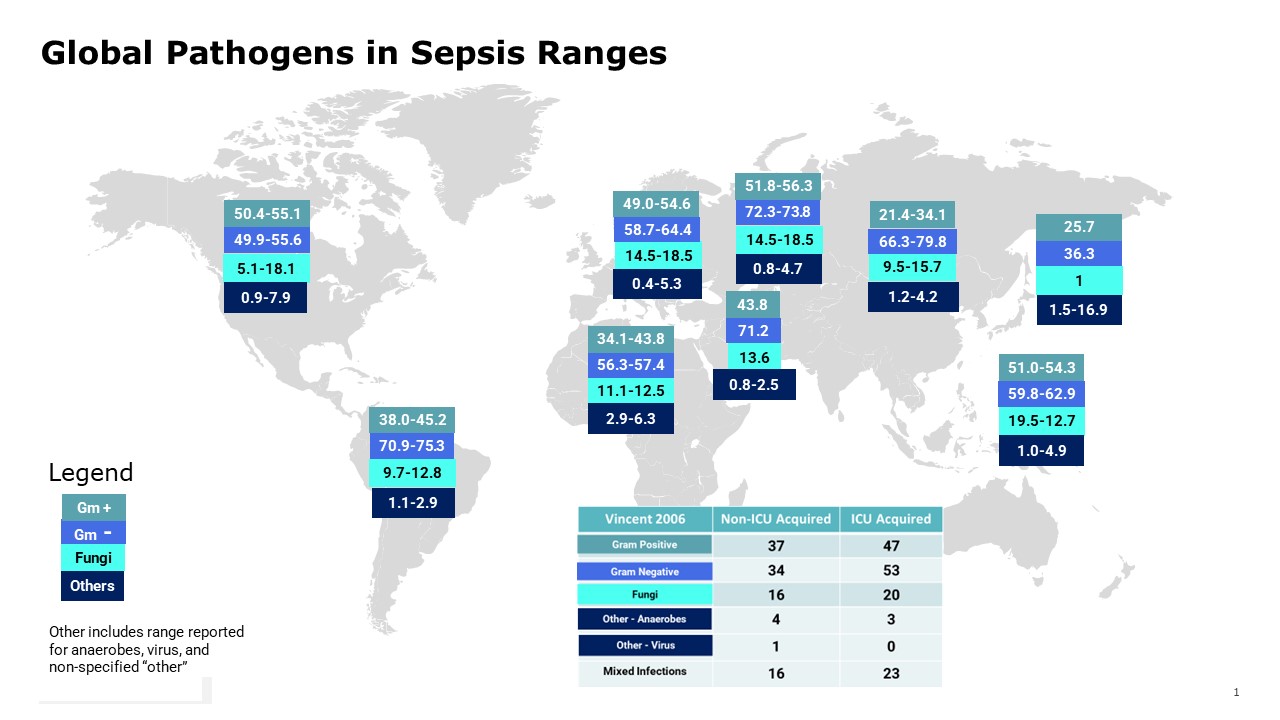
CONCLUSIONS:
-
With the exception of COVID, outbreaks, bacterial pathogens are the most prevalent.
-
There remains a high percentage of patients without blood culture pathogen identification which may further complicate sepsis treatment plans.
-
Globally, there are different prevalence rates which should be accounted for in the development of treatment strategies in sepsis patients. This includes ICU as well as non-ICU acquired sepsis.
To receive articles like these in your Inbox, you can subscribe to Sepsis Program Optimization Insights.
Erkan Hassan is the Co-Founder & Chief Clinical Officer of Sepsis Program Optimization where he designs & oversees the implementation of solutions to optimize sepsis programs.
To discuss your organization’s Barriers of Effective Sepsis Care, contact Erkan by phone (844) 4SEPSIS (844-473-7747), email (erkan@spo.icu), or video chat.

